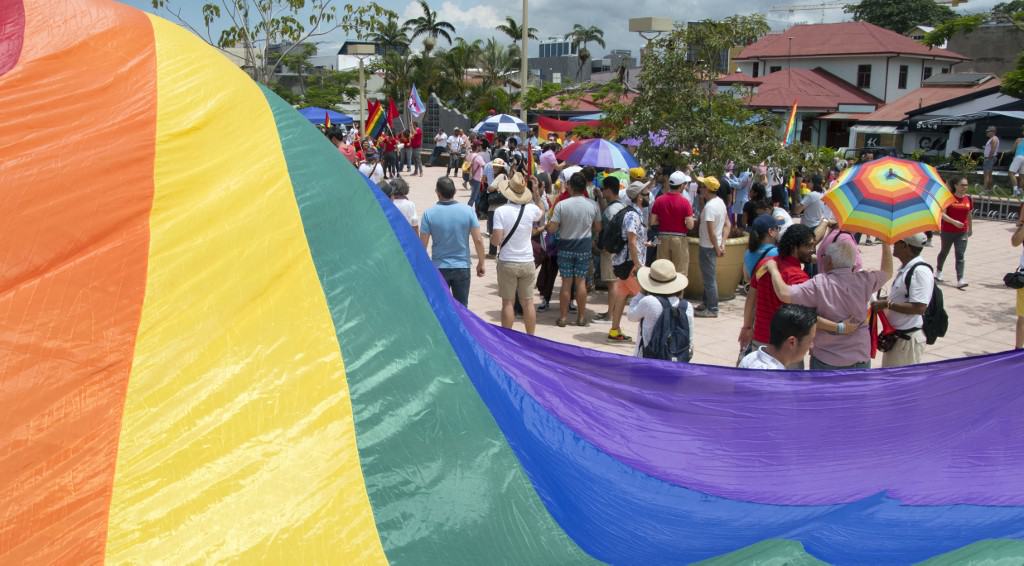Same-sex couples in Costa Rica will be able to marry as of May 26, when a judicial provision that authorizes these marriages enters into force.
A 2018 ruling of the constitutional chamber of the Supreme Court of Justice will take effect Tuesday, and the LGBT community is preparing to celebrate the first marriages with virtual parties in compliance with the sanitary measures to contain the spread of COVID-19.
“Before the pandemic, we had a big party planned at the national level,” Gia Miranda, executive director of the Sí Acepto Costa Rica campaign, told AFP.
Instead, Miranda explained, there will be a “commemoration” that will begin Monday night with a live broadcast on state television, streaming on social networks and other channels, with a historical review of the fight for equal marriage, and messages from international and local personalities.
The broadcast will include the first marriage between two women at 12:01 a.m. on Tuesday.
With 5 million inhabitants, Costa Rica is a religious country and its constitution establishes Catholicism as the official religion of the State.
“Same-sex couples have waited for many decades for the recognition of their rights on equal terms,” LBGTI Presidential Commissioner for the Population, Luis Salazar, told AFP.
“They pay the same taxes as any other citizen, they have the same obligations under the law, but sexual orientation became a discriminatory condition to deny them their rights,” the lawyer and activist said.
He pointed to a recent attempt by conservative deputies to ask the Supreme Court of Justice for an indefinite postponement of the right to equal marriage, in which lawmakers argued they needed time to legislate on it.
The president of the Legislative Assembly, evangelical pastor Eduardo Cruickshank, supported the request, noting on social media that he was “committed to defending the family as established and pleasing our Heavenly Father.”
The Legislative Assembly ultimately rejected that motion, clearing a final major legal hurdle.
A day decades in the making
Luis Salazar recalled how it has been 20 years since the constitutional chamber urged Congress to legislate on the subject of same-sex marriage, and that since 2010 bills had begun to be presented — none of which were voted on.
“There is a lack of political will, there has been no interest in protecting the rights of the LGBTI population,” Salazar said.
The issue gained new prominence in Costa Rica when in January 2018 the Inter-American Court of Human Rights (IACHR) issued an advisory opinion, at the request of San José, in which it determined that a homosexual couple has the same marriage rights as a heterosexual couple .
Based on that resolution, the Supreme Court of Justice declared unconstitutional the norm of the Family Code that prevents same-sex marriage and gave the Legislative Assembly 18 months to prepare new regulations.
In the event that Congress did not legislate on the subject (which it did not), same-sex marriage would automatically become legal when the 18-month term expires May 26, 2020.
Miranda recognized that efforts will continue to educate the population.
“A legal change does not imply that there is a social change, but it is an enormous advance, a wonderful milestone in the history of Costa Rica,” she said.
In Miranda’s opinion, the change implies that “at a legal level, we are no longer going to have second-class citizens,” and that all families will be protected under the law regardless of how they are comprised.
She indicated that there are more than 1,140 families in Costa Rica headed by same-sex couples, according to the 2011 census, and the legal change implies their children will have full protection under the law.
“We already have to turn the page; we have to understand that this has nothing to do with religious beliefs, it has to do with basic rights,” Miranda said.






